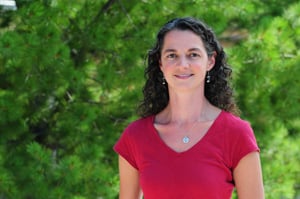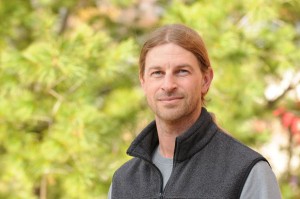Research Assistant Professor Yinan Yuan and Assistant Professor Hairong Wei have received $149,888 from the US Department of Agriculture, National Institute of Food and Agriculture, for a project, Systematic Identification and Characterization of Overlapping Sense/Antisense Gene Loci in Populus Genome.
Assistant Professor Audrey Mayer presented work on information theory and sustainable landscapes in a symposium on Coupled Human And Natural Systems (CHANS) at a meeting of the International Association of Landscape Ecology in Newport, Rhode Island, this week. Azad Henareh Khalyani, a PhD candidate in forest science, presented a poster on his remote-sensing work on a protected area in northwestern Iran.

Research Assistant Professor Sara Robinson is crafting a pilot course with a decidedly interdisciplinary focus–for students of all backgrounds and majors, including engineers, scientists, chemists, artists, wood enthusiasts and writers.
“Wood in the Modern Age” will be offered beginning in fall 2012 semester. It is intended to develop a fundamental understanding of the properties, characteristics, and role of wood in today’s society–along with its importance in sustainable building.
The course will focus on wood as a biological material and expore its relationship to art, architecture, engineering and science. It is for both undergraduate and graduate students; class sessions will be in the evening.
The course work will culminate with a design project in which the knowledge gained–combined with the unique background of each student–will be applied to a final project. Class instruction will combine lecture, laboratory and studio time, as well as situational learning experiences.
This offering, which also will be open to students at Finlandia University, adds to the more than 100 classes at Tech that have a sustainability component. Robinson says it is a good fit for a world that is increasingly complex and interdependent.
| by Marcia Goodrich, Michigan Tech magazine editor
Pressure-treated wood is great stuff, but the chemicals used to preserve it from decay can leach out, where they can be toxic to bugs, fungi and other hapless creatures that have the bad luck to be in the neighborhood. Now, a team of scientists has used nanotechnology to keep the chemicals inside the wood where they belong. “It’s a new method that uses nanoparticles to deliver preservatives into the lumber,” said chemistry professor Patricia Heiden. “In our experiments, it reduced the leaching of biocides by 90 percent.” The nanoparticles are tiny spheres of gelatin or chitosan (a material found in the shells of shrimp and other shellfish) chemically modified to surround the fungicide tebuconazole. The little spheres require no special handling. “You just pressure-treat the wood in the usual way,” Heiden said. The initial tests show that the nanoparticle-treated wood is just as resistant to rot and insects as conventionally treated lumber. The researchers are now testing the wood in the warm, wet weather of Hawaii. The research is funded by the US Environmental Protection Agency. Also contributing to the project are chemistry PhD student Xiaochu Ding and, from the School of Forest Research and Environmental Science, Research Engineer/Scientist II Dana Richter, Senior Research Engineer/Scientist Glenn Larkin, Assistant Research Scientist Erik Keranen and Professor Peter Laks. |


